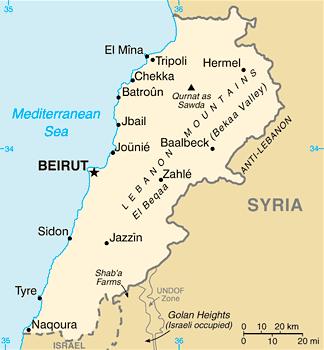BEIRUT, Lebanon -- Right up to the very end, the farm community near the town of Massoudiyye in northern Lebanon was untouched by this summer's Israeli invasion. Its Lebanese farmers and their migrant Syrian workers, ironically, had even briefly benefited -- demand for their produce increased as supply in the south waned under Israeli air attacks. Then, two days before the Aug. 14 ceasefire, an Israeli jet aimed a bomb at one of the community's small road bridges -- and missed. Residents came outside to see what had happened. That's when the Israeli jet dropped a second bomb, killing 11 people. The way Nell Abou Ghazale Hasbini describes it, the attack was completely unnecessary -- and motivated only by Israel's desire to kill Lebanese civilians fleeing the fighting by way of northern roads. In the wake of the summer war, there is a deep animosity towards Israel in Lebanon, especially in the rural communities most deeply affected by the fighting. The conflict killed hundreds of rural civilians, cut off many road routes for produce and disrupted international efforts to jump start the Lebanese economy following the end of its 15-year-long civil war in 1990 and the departure of occupying Syrian troops in 2005.
Lebanese Economy Still Feels Effects of Summer War with Israel

